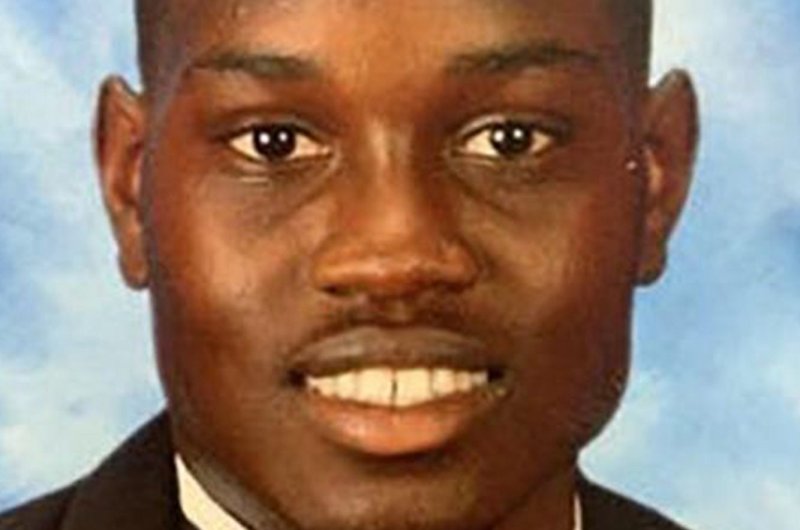Ahmaud Arbery, 25, was fatally shot on February 23, 2020 after being chased while jogging near Brunswick, Georgia. File Photo courtesy the Family of Ahmaud Arbery/UPI |
License Photo
Nov. 17 (UPI) -- Travis McMichael, one of three White men charged with murder in the death of Ahmaud Arbery last February in Georgia, took the stand Wednesday as the first witness for the defense.
Arbery, 25, was fatally shot on February 23, 2020, after being chased by some White residents of the Satilla Shores neighborhood while jogging near Brunswick, Ga., where he resided.
"I want to give my side of the story," Travis McMichael, who fired the shotgun that killed Arbery, according to the Georgia Bureau of Investigation, said when his attorney, Jason Sheffield, asked him if he wanted to testify Wednesday.
Travis McMichael has been charged with felony murder and other charges related to the fatal shooting of Arbery, along with his father, Greg McMichael, and William "Roddie" Bryan.
Other charges each of the three men faces include malice murder, aggravated assault, false imprisonment and criminal attempt to commit false imprisonment.
All three defendants have pleaded not guilty.
The defense has argued that Travis McMichael shot Arbery in self-defense as they wrestled over Travis McMichael's shotgun.
Defendants further argue that the McMichaels were attempting to conduct a citizen's arrest of Arbery due to their suspicion he might have stolen something from a house under construction, and Bryan cut him off and recorded a video of the pursuit and shooting.
Travis McMichael told his attorney during his testimony he had discussed increased crime in the Satilla Shores neighborhood with his family, which he noticed since moving there in 2018, and the issue came up in talks with other neighbors.
"They were concerned, so they weren't going out as much anymore," he said.
Before Travis McMichael testified, Kevin Gough, who represents Bryan, delivered his opening statement.
Gough argued that evidence of Bryan trying to hit Arbery with his pickup truck was "non-existent."
"(Evidence shows Bryan) had no intent to strike or injure Mr. Arbery," Gough told jurors.
Gough also said that Bryan left behind his rifle before getting in his truck when he saw Arbery running in the neighborhood and the McMichaels chasing him.
He added that Bryan cooperated with law enforcement by immediately turning over cell phone video he recorded of the pursuit and shooting.
On Thursday, Gough objected to the presence of "any more Black pastors," in the courtroom after Rev. Al Sharpton came into the courtroom, arguing that high-profile individuals in the courtroom could be intimidating.
After the comment about Black pastors, Gough also made reference to Kentucky Fried Chicken mascot Colonel Sanders, The Hill reported.
"If a bunch of folks came in here dressed like Colonel Sanders with white mask sitting in the back, I mean, that would be..." he said before Judge Timothy Walmsley cut him off.
Gough apologized the next day for the remarks, but that didn't satisfy Sharpton.
"There is no way to clarify his insult," Sharpton said in a statement. "It shows basic bias -- the same bias that killed Ahmaud Arbery."
Walmsely refused to bar Sharpton from the court, and also refused defense's request to bar civil rights leader Rev. Jesse Jackson from the courtroom.
The prosecution rested its case Tuesday after a total of 23 witnesses were heard by the jury over eight days of testimony during which prosecutors sought to prove the three defendants killed Arbery on ill-founded assumptions he was committing crimes in the area.
The death of Arbery, along with police killings of George Floyd and Breonna Taylor last year fueled months of Black Lives Matter protests.
The 12-person jury in the Arbery murder trial has only one Black juror.
Walmsley said there appeared to be "intentional discrimination" in selecting the jury, but the defense only had to show a valid reason beyond race as to why they struck jurors, so he allowed the case to move forward, CNN reported.















